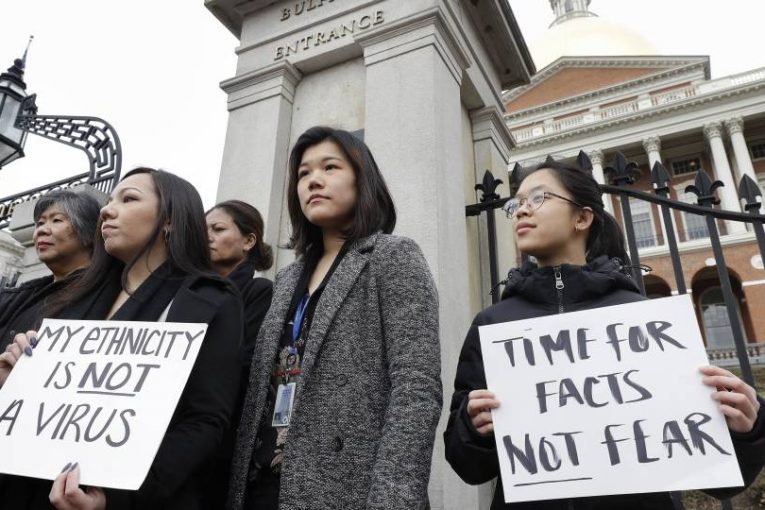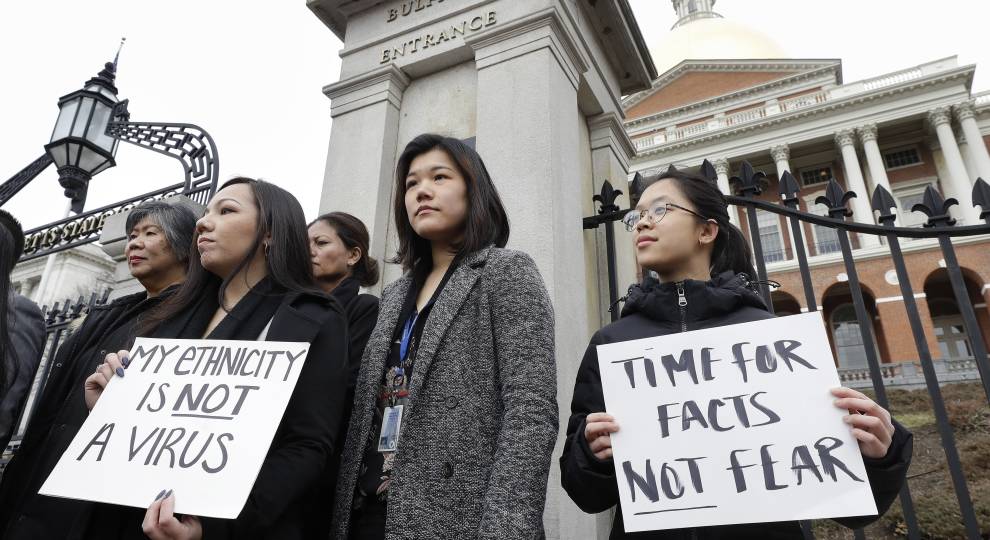

By Lovepreet Dhinsa
SAN FRANCISCO, CA – As pandemic regulations continue to loosen and schools begin reopening, schools must ensure the well-being and safety of their Asian American and Pacific Islander-identified students.
In comparison to other students, AAPI students are returning to school at a lower rate.
According to a U.S. Education Department survey, seven out of every 10 AAPI students in K-12 education are still learning online. This has been partly attributed to the increase in hate crimes against the AAPI community since the start of the COVID-19 pandemic.
Stop AAPI Hate is a national coalition addressing anti-Asian racism across the United States, originally founded by the Asian Pacific Policy and Planning Council (A3PCON), Chinese for  Affirmative Action (CAA), and San Francisco State University’s Asian American Studies Department.
Affirmative Action (CAA), and San Francisco State University’s Asian American Studies Department.
The coalition’s most recent report found 343 incidents reported by youths (0 to 17 years old) in between March 19, 2020 and February 28, 2021. Another report found that 77 percent of AAPI youth also expressed anger over this racism, 60 percent expressed their disappointment, and 30 percent expressed fear in the community.
According to the coalition, “families should not have to choose between their children’s well-being and their education, yet this is a decision many AAPI families across the nation are being forced to make. The choice of many AAPI parents to keep their children home amid the return to in-person learning shows that concrete action is necessary to ensure our students feel safe and protected from racism while at school.”
The coalition urges schools to consider taking the following steps: acknowledging and denouncing Anti-Asian racism to create safer campus environments, integrate ethnic and anti-racism curriculum to promote racial justice and equity, develop systems of anonymous reporting for bullying and efficiently respond to these concerns, hold trainings for teachers and faculty, and to acknowledge the physical and mental well-being of AAPI students.
The coalition continues to monitor reports of AAPI hate and support the community as they can.
 Lovepreet Dhinsa is a junior undergraduate student at the University of San Francisco, pursuing her bachelor’s degree in Politics with a minor in Legal Studies. She has a passion for criminal defense law, and strives to go to law school to fight for indigent clients. As such, she is also involved in her university’s mock trial program and student government.
Lovepreet Dhinsa is a junior undergraduate student at the University of San Francisco, pursuing her bachelor’s degree in Politics with a minor in Legal Studies. She has a passion for criminal defense law, and strives to go to law school to fight for indigent clients. As such, she is also involved in her university’s mock trial program and student government.
To sign up for our new newsletter – Everyday Injustice – https://tinyurl.com/yyultcf9
Support our work – to become a sustaining at $5 – $10- $25 per month hit the link:
So, what does this coalition think about the SF school board member who is suing her colleagues and the district regarding their actions taken in response to earlier social media comments, which were perceived as racist against Asians? Isn’t this an obvious issue for them to weigh-in on, one way or another?
And, what about the decisions to rename SF schools, including removal of Lincoln’s name? And, the decision to do-away with merit-based enrollments at the top SF public school? (Which primarily results in a “disproportionate” percentage of Asians attending that school?)
What’s with the silence, regarding these issues? (I have a theory regarding that.)
In my opinion Democrats are in a full press right now trying to make Asians feel like they are an abused minority. They’re using the COVID pandemic and trying to form them into another Democrat voting block. Never waste a good crisis.
I think that’s a sound theory.
But I also have another theory. The fact that this school board member is black makes it particularly “off-limits” to discuss the issues. For that matter, the actual issues are never discussed – only admonishments.
The conversation never moves beyond “bad” white supremacists, etc. And by extension, “bad Trump supporters”, etc. (Which corresponds with your theory, as well.)
If you actually examine what the school board member said, it’s not so different than the underlying “social justice” type of view. (Another reason that it’s uncomfortable for them to discuss or acknowledge.)
Same thing with merit-based enrollments, etc. It’s particularly difficult for them to discuss when it disproportionately “benefits” Asians.
It’s not really about any person per se. It’s deeper than that.
Keith, you realize that Stop AAPI Hate is run by Asians? You’re comment seems awfully patronizing.
I realize that your comments are directed at Keith, but can’t some Asian groups also be primarily composed of Democrats? And more to the point, attracting those who espouse “social justice” movement views?
What do you suppose this coalition (including those from SF State’s Asian Studies department) think of comments like this?
https://www.latimes.com/california/story/2021-03-22/elected-leaders-call-for-san-francisco-school-board-member-to-resign-after-2016-racist-tweets
Do they agree with the comments, or think they should be condemned? Or, do they view it as a privacy issue, and irrelevant as to the ability of the school board member to serve? (The actions taken did not remove her from the board.)
Also, do they believe that such comments “foster” resentment and racism from some, regardless of how they were originally intended? And, do they see the similarity with comments arising from the larger “social justice” movement?
What do they think of the decision to do-away with merit-based enrollments at Lowell high school, which primarily “benefits” Asians?